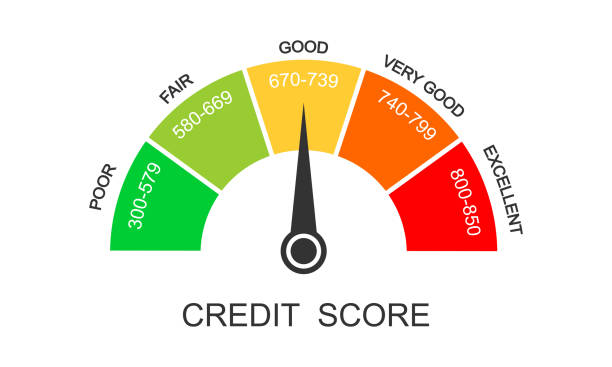
Your credit score is a three-digit number representing how likely you are to repay debt. Lenders use it to determine whether to give you a loan and what interest rate to charge you. A high credit score means you’re a low-risk borrower, which could lead to a lower interest rate on your loan. Conversely, a low credit score could lead to a higher interest rate and you won’t be approved for a loan.
Most credit scores range from 300 to 850. The higher your score, the better your credit is considered to be. Here is a breakdown of what each credit score range means:
Exceptional Credit Score: 800 to 850
People with credit scores between 740 and 850 are thought to be responsible when borrowing money and are likely to qualify for the lowest interest rates. The best scores, though, are between 800 and 850.
People with this score have paid their bills on time for a long time and have low balances on their credit cards. People with good credit scores may get lower interest rates on mortgages, credit cards, loans, and lines of credit because they are thought to be less likely not to pay back their debts. If you want a personal loan, it helps to have a good credit score because it usually makes up for not having collateral.
Very Good Credit Score: 740 to 799
People with credit scores of 740 or higher are generally considered to have very good credit. As a result, they’re eligible for the best interest rates on loans and lines of credit. However, even with a score in this range, you may not get the best terms on a mortgage if you’re self-employed or have other factors that lenders view as high risk.
Good Credit Score: 670 to 739
People with credit scores in this range are considered to have good credit. They should be able to get most loans and lines of credit, but they will probably pay higher interest rates than people with very good or excellent credit. If you want a mortgage, you may get a better interest rate with a credit score in this range if you make a larger down payment.
Fair Credit Score: 580 to 669
People with credit scores in this range are considered to have fair credit. They may be able to get some loans and lines of credit, but they will probably pay higher interest rates than people with good credit. If you have a fair credit score and want to get a loan, you may be able to improve your chances by applying with a cosigner who has good or excellent credit.
Poor Credit Score: 300 to 579
People with credit scores in this range are considered to have poor credit. As a result, it may be difficult for them to get loans and lines of credit, and if they are approved, they will probably pay higher interest rates. On the other hand, people with poor credit may improve their credit scores by paying their bills on time, reducing their debt, and avoiding applying for new credit.
You can do a few things to improve your credit score, no matter what range it falls into. One is to make sure you consistently pay your bills on time. Another is to keep your balances low on your credit cards. You can also try to get help from a credit counseling service if you’re having trouble managing your debt.
No CreditScore: 0 to 579
If you don’t have a credit score, it may be because you haven’t borrowed money or have a limited credit history. You may be able to get a loan if you have a cosigner with good or excellent credit. Or, you could try to build your credit by getting a credit card and using it responsibly. Remember, it takes time to build credit, so don’t get discouraged if your score isn’t where you want it to be right away.
You can do a few things to improve your credit score, no matter what range it falls into. One is to make sure you constantly pay your bills on time. Another is to keep your balances low on your credit cards. You can also try to get help from a credit counseling service if you’re having trouble managing your debt.
The Bottom Line
You can do a few things to improve your credit score, no matter what range it falls into. One is to make sure you continually pay your bills on time. Another is to keep your balances low on your credit cards. You can also try to get help from a credit counseling service if you’re having trouble managing your debt.
Your credit score is an essential factor in borrowing money. The higher your score, the more likely you will be approved for a loan and get a lower interest rate. A low credit score could lead to a higher interest rate and could mean you won’t be approved for a loan. If you’re planning on borrowing money, it’s a good idea to check your credit score beforehand to know where you stand.